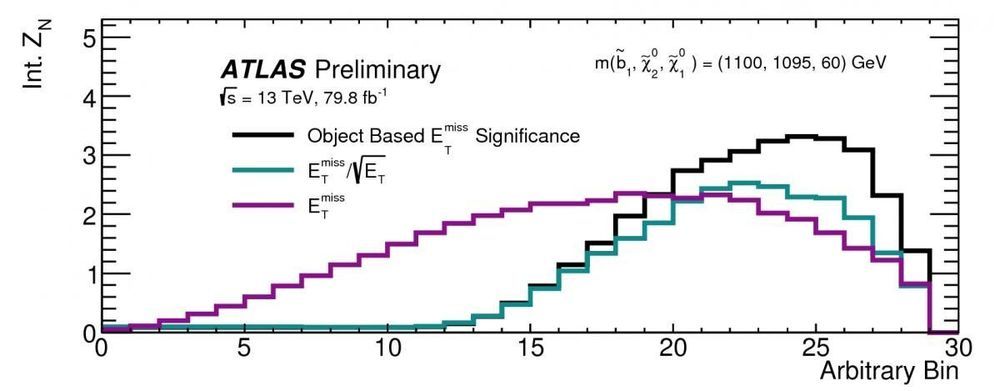Dark matter is an unknown type of matter present in the universe that could be of particle origin. One of the most complete theoretical frameworks that includes a dark matter candidate is supersymmetry. Many supersymmetric models predict the existence of a new stable, invisible particle called the lightest supersymmetric particle (LSP), which has the right properties to be a dark matter particle.
The ATLAS Collaboration at CERN has recently reported two new results on searches for an LSP that exploited the experiment’s full Run 2 data sample taken at 13 TeV proton-proton collision energy. The analyses looked for the pair production of two heavy supersymmetric particles, each of which decays to observable Standard Model particles and an LSP in the detector.










Comments are closed.